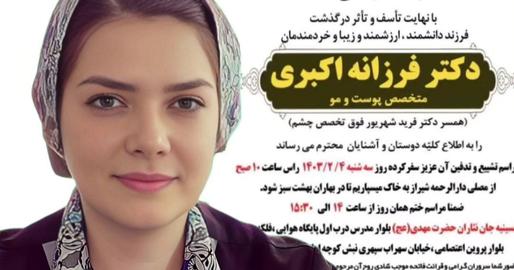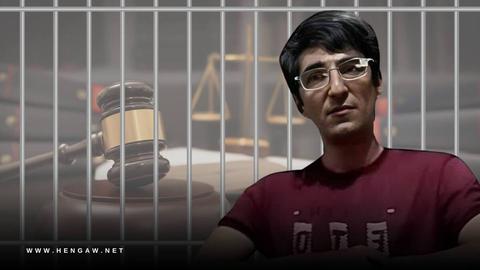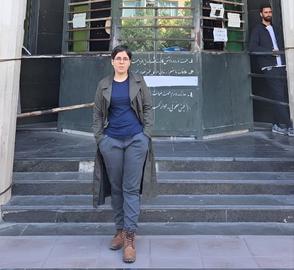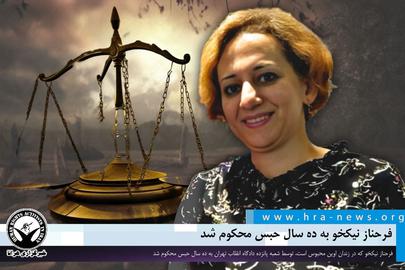From Iran's Supreme Leader Ali Khamenei to the rank and files of the IRGC, Police commander, MPs, and former officials – there has been no shortage of threats against Israel over the past few days.
Israel has not officially claimed responsibility for the April 1 attack, but some Israeli officials have stated that the targeted building housed the IRGC Quds Force headquarters and was a "legitimate target."
Iran reported that at least five advisers of the IRGC were killed alongside Brigadier General Mohammad Reza Zahedi and Zahedi's deputy, General Mohammad Hadi Haji Rahimi.
Zahedi played a central role in the supply of Iranian-made missiles to Hezbollah and had been subject to US sanctions as early as 2010.
In response to concerns about Iran's potential retaliatory attack, the Israeli military also ceased granting leaves for combat units on Thursday.
The attack marks a significant strike on Iranian targets in Syria, increasing regional tensions.
Iran's network of proxies in the region, known as "the axis of resistance," has engaged in confrontations with Israel and launched attacks on US forces and bases across the Middle East since October.
Iran's Supreme Leader Ali Khamenei has threatened to "punish" Israel as he said that last week's attack in Damascus was a direct aggression against Iran.
"Consulates and embassy institutions in any given country are deemed as the sovereign territory of that nation," he said in his Eid al-Fitr sermon Wednesday.
"Therefore, an attack on our consulate equates to an attack on our own soil," he added.
Khamenei, both in his Eid al-Fitr address and earlier in his condolence message, stressed the necessity of "punishing" Israel for the deaths of seven Islamic Revolutionary Guard Corps (IRGC) members, including two senior commanders, in the attack attributed to Israel.
"The evil regime must be punished, and it will be punished," he warned.
Ahmad Reza Radan, the Police Commander of the Islamic Republic, proclaimed, "From now on, sleep shall evade the eyes of the Zionists."
Mohsen Rezaei, the former commander in chief of the IRGC, posted the hashtag "Punishment of the transgressor" on his X social media account.
"With the blessing of the Almighty, the era of strategic patience for the Iranian nation, as well as the children and oppressed people of Gaza, is approaching its end," he said.
Deputy Commander-in-Chief of the IRGC, Ali Fadavi, said, "The destruction of the Zionist regime is a fervent desire of the Iranian nation and the Islamic world, and we will seek revenge against the enemy."
Fadavi added, "We will avenge the blood of the martyrs, and it must be emphasized that we stand with pride. Our presence is known worldwide."
The statements have heightened concerns about a broader regional conflict.
However, Tehran has recently attempted to reduce tensions with Washington following a drone attack on a US military base on the Jordanian-Syrian border in January, which resulted in the deaths of three American troops.
Senior US and Iranian officials engaged in indirect talks in January, and both sides have demonstrated efforts to de-escalate hostilities.
Continuing their threats, the commander of the Iranian army said, "The Gaza war is Netanyahu's lifeline, and if it ends, his government will collapse."
General Seyyed Abdul Rahim Mousavi said that Netanyahu's political survival hinges on the continuation of the Gaza conflict.
"If the war halts, his government will likely fall. Hence, this conflict is pivotal for his political existence," he said
Alireza Tangsiri, the commander of the IRGC Navy, said in an interview with the Lebanese Al-Mayadeen news channel that "the most effective way to confront the Zionists is by forming an Islamic coalition consisting of the armies of Islamic nations."
Regarding Iran's response to the April 1 attack, Tangsiri said that "authorities will retaliate firmly at the appropriate time, affirming they will certainly respond to the consulate bombing."
Meanwhile, the commander of the Karbala base during the Iran-Iraq war said, "The strategy adopted by the Islamic system is to seek revenge for our martyrs but with prudence and rationality."
Ahmad Gholampour said: "The strategy pursued by the Islamic system is to ensure that we avenge these martyrs under all circumstances, but employing a strategic and rational approach, thereby thwarting the Zionist regime's objectives."
"Rest assured that the minimum outcome of this conflict will be the inevitable downfall of the current Zionist regime," he added.
Major General Seyyed Yahya Safavi, Khamenei's assistant and senior advisor, declared, "The blood of the martyrs will herald fundamental changes in the region's strategies, with the resistance front under Iran's leadership shaping the destiny of this region."
"Iran has officially communicated its stance regarding the attack on the Iranian consulate in Damascus," he said.
Safavi added, "The specter of fear and terror now looms over the occupied territories, with the Zionists dreading their fate every night. They are the most fearful, though we hesitate to recognize them as human."
The strikes in Damascus have led to an Iranian lawmaker urging authorities to hit the Israeli position in the Republic of Azerbaijan.
Following the attack, Member of Parliament Jalal Rashidikochi called for retaliation against Israel.
Rashidikochi proposed a direct attack on "one of the Zionist diplomatic centers in a regional country," specifically mentioning Azerbaijan as a target.
The Islamic Republic has historically supported various organizations in the Middle East, such as Hamas and the Palestinian Islamic Jihad, which are engaged in activities related to the Israeli-Palestinian conflict.
This support includes the provision of weapons and other forms of assistance.
On Wednesday, two top Israeli officials warned that Israel would retaliate with strikes inside Iran if the Islamic Republic launched an attack from its territory.
Israeli Defense Minister Yoav Gallant, speaking to troops at an Iron Dome air defense system battery in northern Israel, emphasized that any attack on Israel would be met with a strong defense and a "powerful response in its territory."
"In this war, we are being attacked from more than one front... from different directions. Any enemy that tries to attack us will first of all encounter a strong defense," Gallant stated.
"But we will know how to react very quickly with decisive offensive action against the territory of whoever attacks our territory, no matter where it is, in the entire Middle East," he added, according to the Times of Israel.
Foreign Minister Israel Katz also posted on the social media platform X that "If Iran attacks from its territory, Israel will react and attack in Iran."
visit the accountability section
In this section of Iran Wire, you can contact the officials and launch your campaign for various problems


























comments